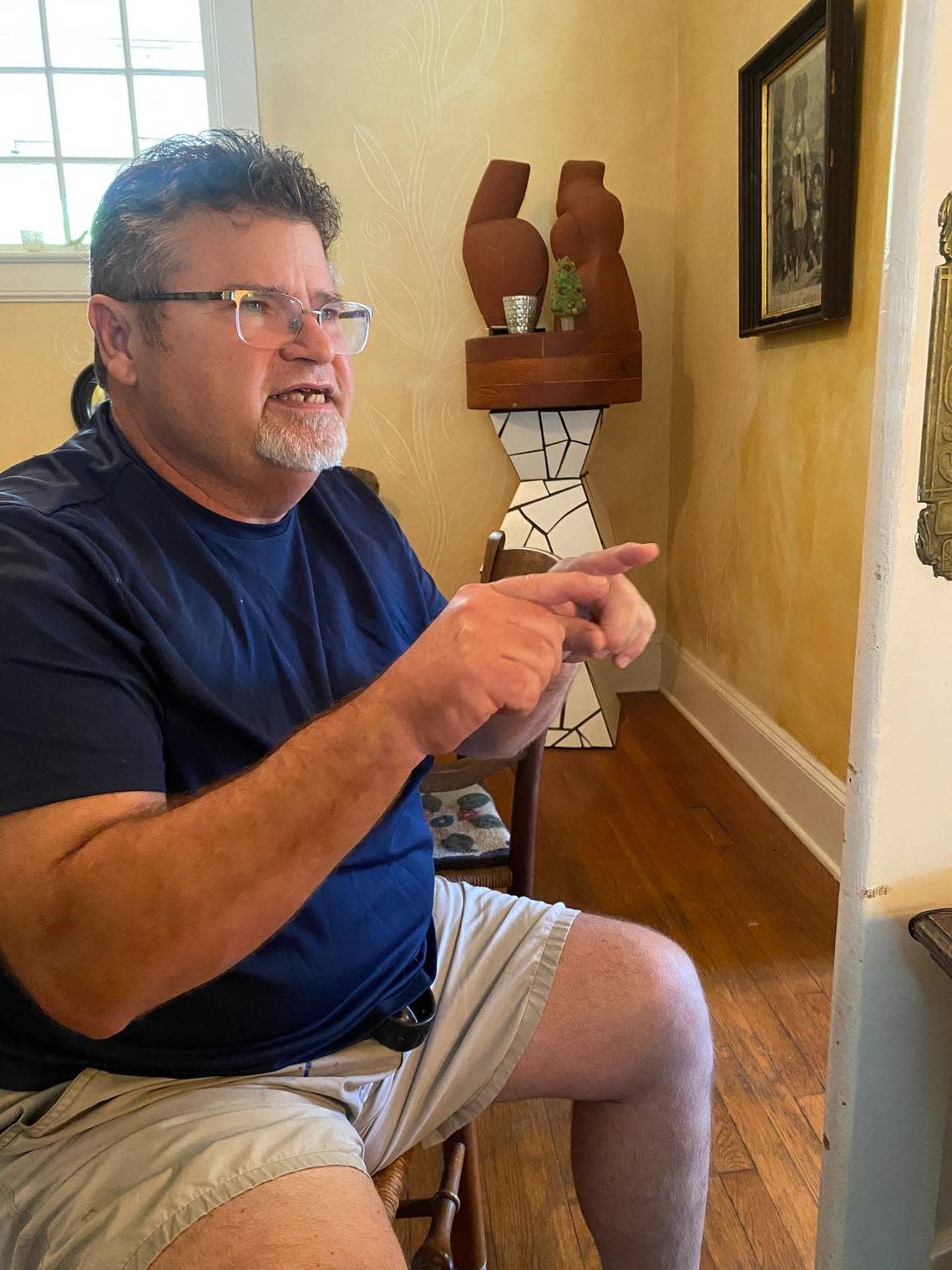This one-man college art department left his colorful mark on buildings across NC town
A dozen years ago, Will Hinton walked into his art studio and chiseled the North Carolina motto out of floor tiles sprinkled with shards of broken dinner plates — a creative task so demanding it required three hours just to carve the letter S.
But when he’d finished, he’d turned “Esse Quam Videri” into a mural that stood 20 feet high and ran 80 feet across, the perfect length for an empty wall in downtown Louisburg, where it hangs today in multi-colored splendor.
And as you drive past those proud letters — meaning “To be, rather than to seem” — you realize there can be no greater tribute to Hinton, who has just retired after 40 years as the one-man, shorts-wearing, goatee-sporting art department for tiny Louisburg College.
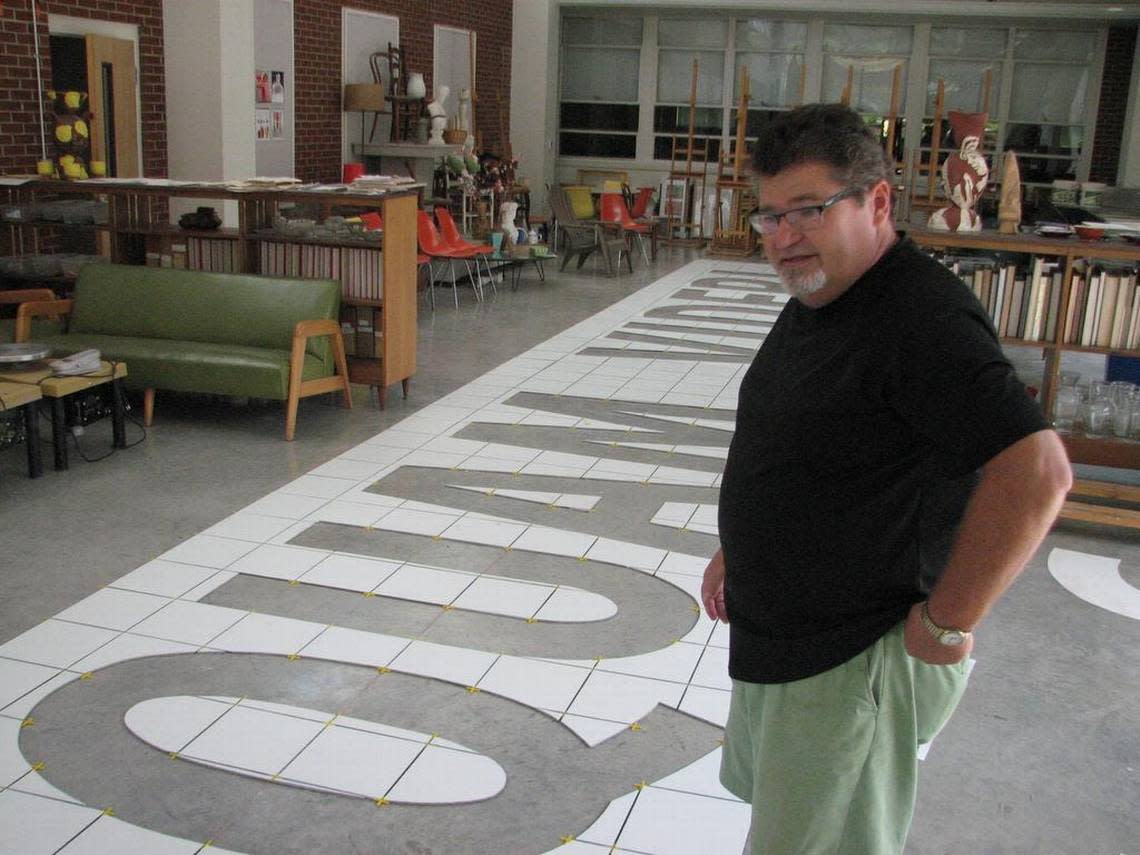
His fingerprints are literally stamped across the Franklin County seat where he spent his career: two more downtown murals and a 50-foot labyrinth on campus, which thousands of people have walked in slow contemplation.
His work also shows up significantly in what is now missing from Louisburg: the Confederate monument, which was moved off Main Street and into a private cemetery at Hinton’s controversial suggestion.
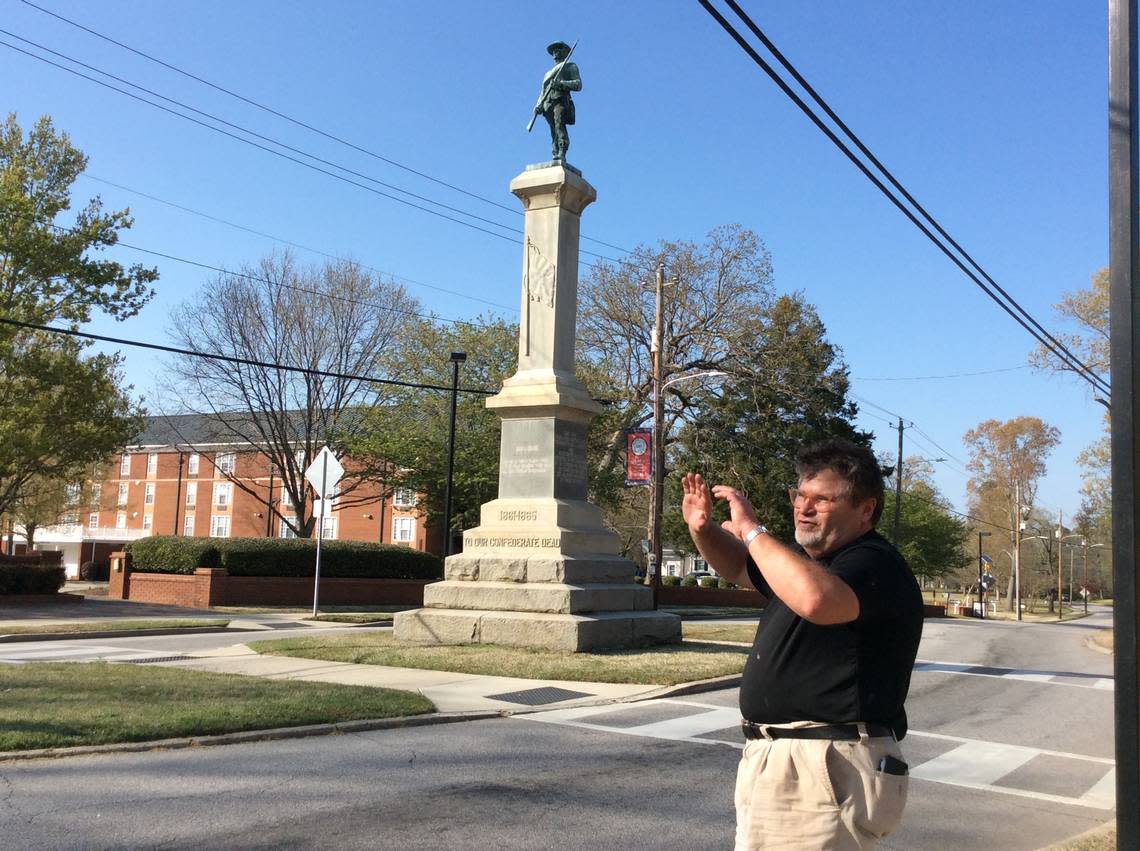
Seeking the fire inside his students
And his example is deeply imprinted on the hearts of roughly 4,000 students at the underdog college, who heard the professor from rural Gates County spouting off quotes from St. Augustine and Picasso, and who saw him begin every semester by lighting a match and asking this question:
“Was the fire already inside this match or did I it put it there? Well, you’re the match, and that fire is already in you. I’m just going to help get it out.”
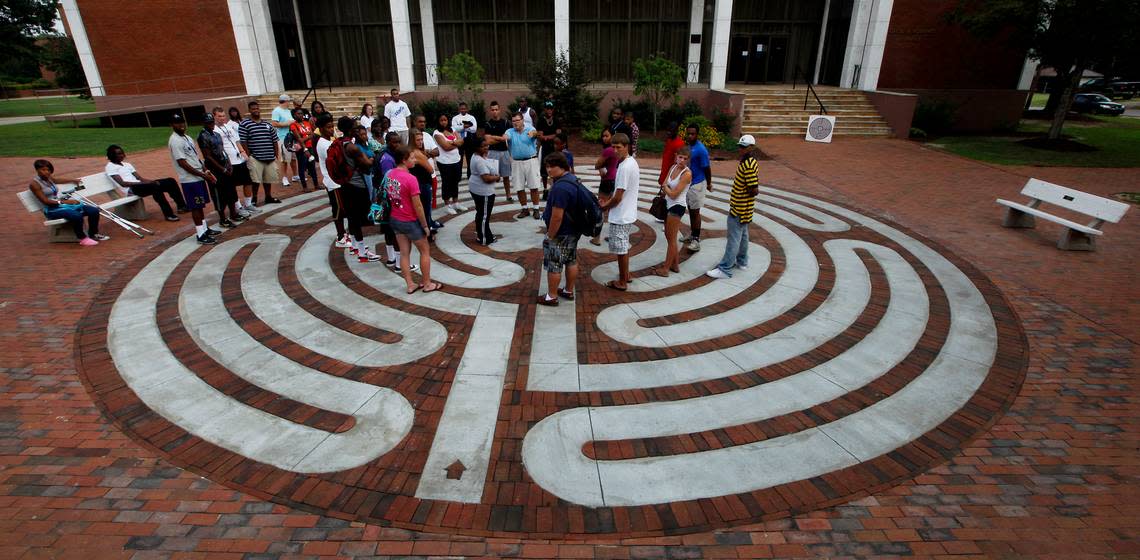
Hinton reflected on his long life in Louisburg after a recent party at his house on Sunset Avenue, which drew 128 admirers. He recalls growing up in an Eastern North Carolina town with roughly 200 people, where you had to drive 45 minutes to find a tennis court, and how he grew up torn between playing football and making art.
“I’m a poet in a linebacker’s body,” said Hinton, 66, paraphrasing a favorite quote about himself. “I’m just taking art off the pedestal.”
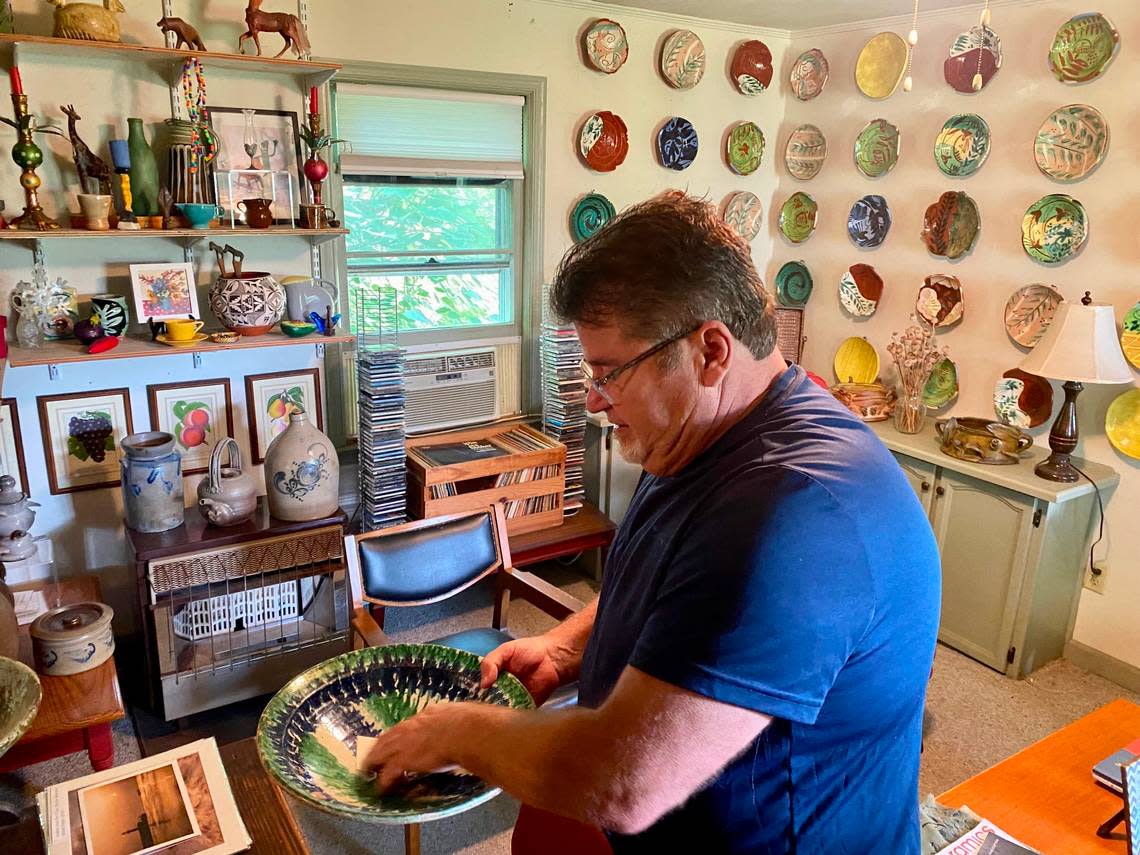
“That’s your (bleeping) project”
Louisburg College dates to the 18th century, first as an all-male academy, then as an all-female academy. It remains the nation’s oldest private, two-year, church-related institution.
Its campus predates community college, but not the idea that some 18-year-olds aren’t quite ready for a four-year institution crawling with thousands of other kids. Unlike at Wake Tech, Louisburg students live on campus full-time.
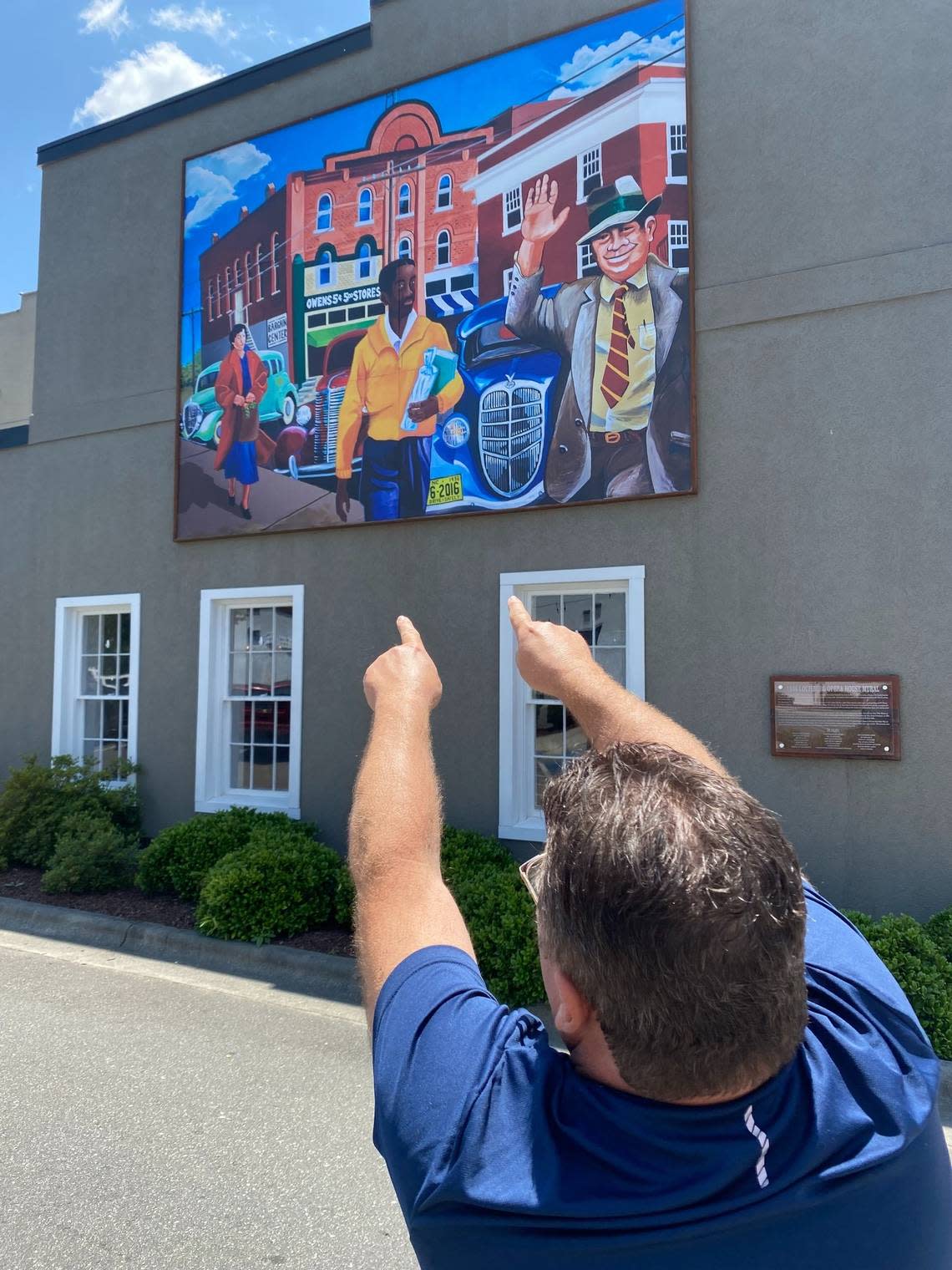
And for Hinton, a small town with a smaller school has always been the ideal spot to not only hammer out his own identity, but to help generations of uncertain kids hammer out their own.
In the early days, the typical student might be a shy farm girl from Nash County — away from home for the first time. Now, with only 280 students on campus, his students tend to be athletes, and maybe a little bit harder to reach with drawing and ceramic arts.
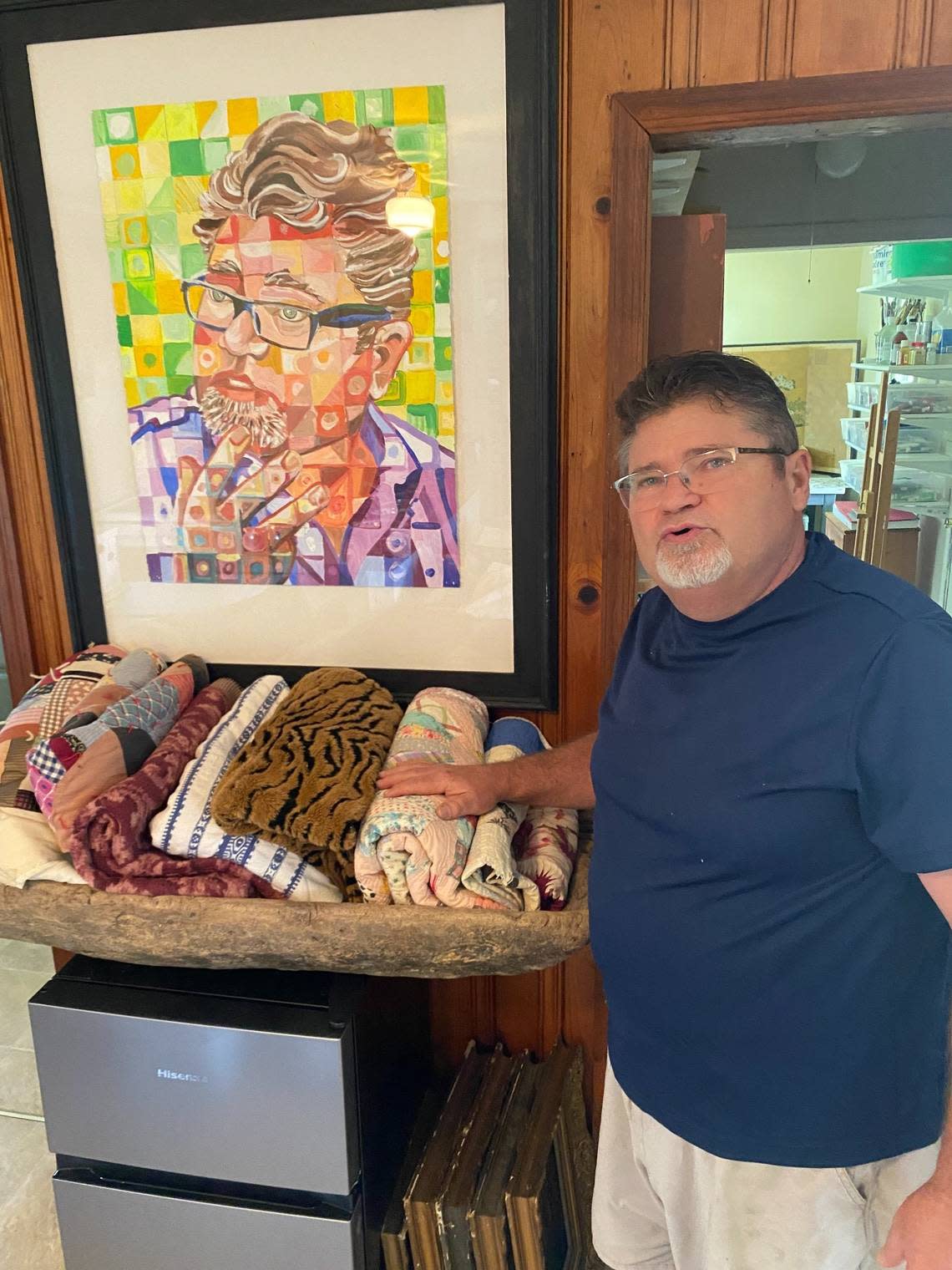
He hands them sheets of colored paper and tubes of rubber cement and tells them to create a picture that means “home.” And when one kid from Louisville struggled for inspiration, Hinton asked him to explain the long scar running down his arm.
The kid told Hinton he’d been playing kickball at his grandma’s house with her door for second base, when he plunged his arm through the glass and started bleeding. His grandma tottered outside with a wet towel and told his friends to wrap it up tight while she called 911.
“Well, that’s your (bleeping) project,” Hinton told his student, laughing at the memory. “He thought of art as something decorative and fancy. It’s just the truth.”
A fateful letter
In 2007, Hinton got a letter from an inmate in Pennsylvania, a middle-aged man who’d already spent 30 years behind bars for a pair of murders he committed at age 15.
In prison, he’d become a painter, and he sent the letter to art departments and galleries nationwide, hoping to display some of his work. Across the nation, the inmate got only four letters in return, one of them from Hinton. And that’s where the inmate sent all of his paintings.
Hinton held the world’s only Joe Aulisio art show in Louisburg, inviting the public to view the work of a killer. In one of those portraits, the imprisoned artist holds a book titled “Worthless People,” and asks, “Am I in it?”

To me, that gesture stands as one of the most essential acts in Hinton’s long career. He did not try to exonerate Aulisio, though he went and met him in person.
He did not seek sympathy for the aging convict, nor did he present his work in freakish or gruesome style.
Rather, Hinton saw a ruined man who had looked deep inside himself, found the truth of his own broken life and held it up to the light so everyone could get a closer look. To Hinton, this was someone interested in being, rather than seeming.
And this process appealed to the ex-football player from Gatesville, who grew up working summers in a sawmill, whose father painted houses, whose grandmother taught him to make apple dumplings, who coaxed art out of the shy farm girl from Nash County.
And like truth in his own life, he framed it, put it on display, and shared it with the world.
